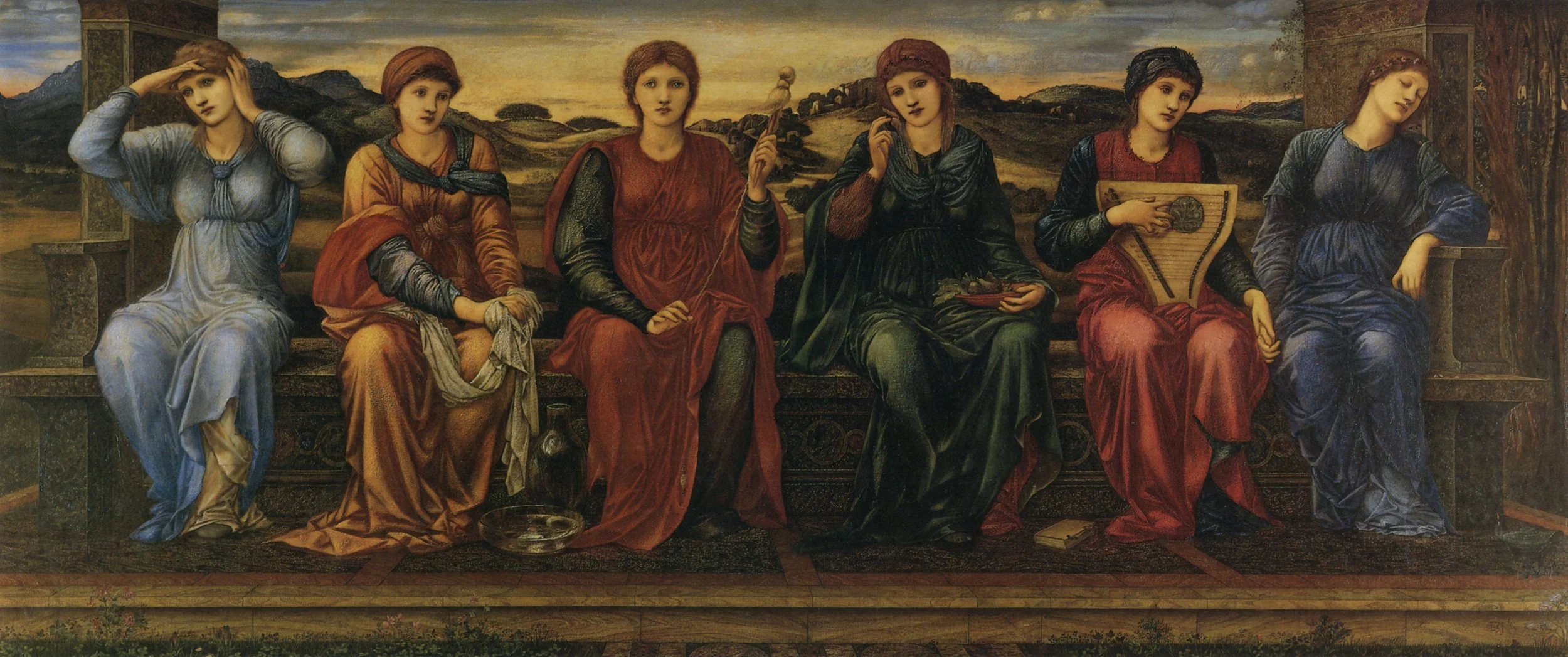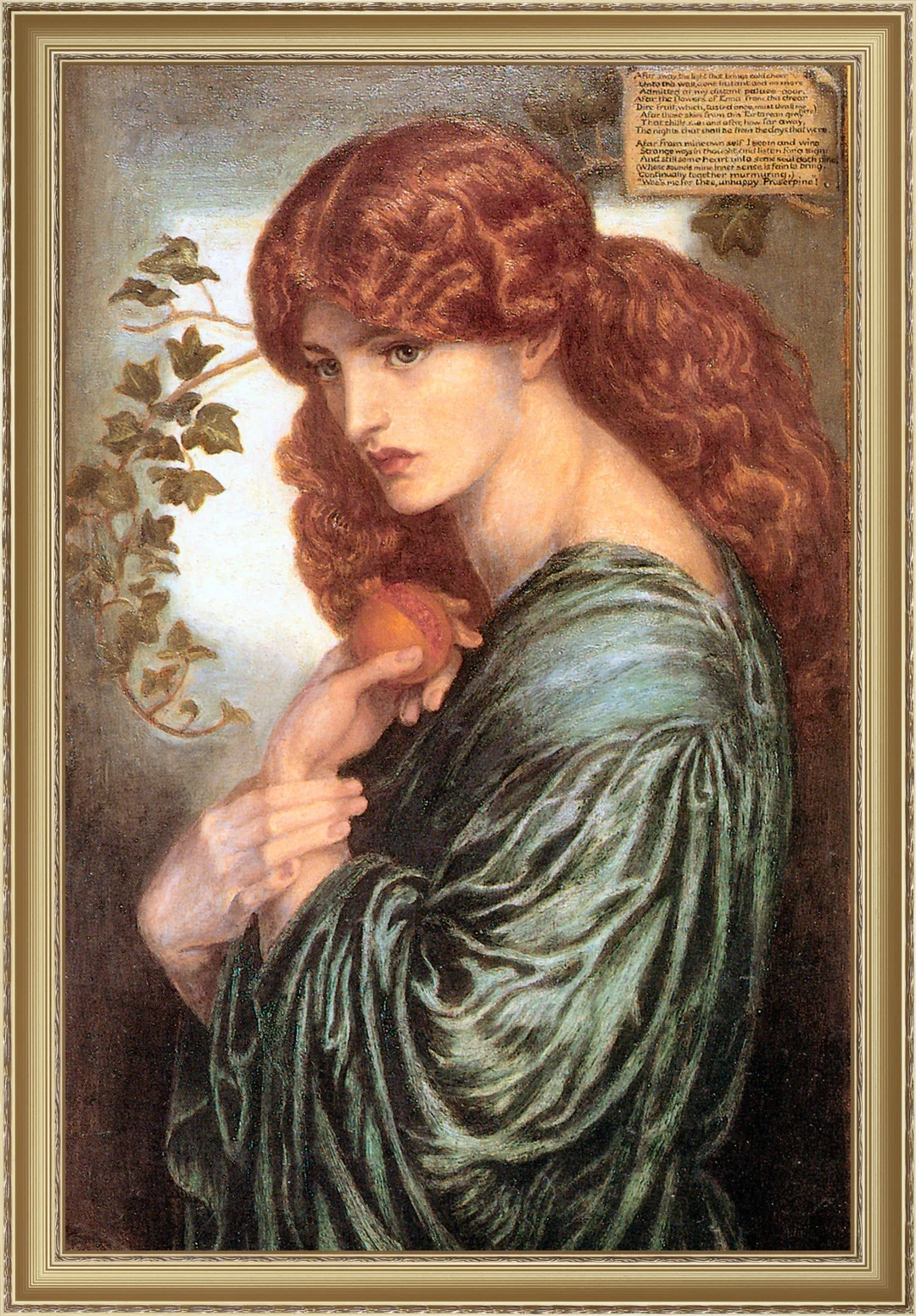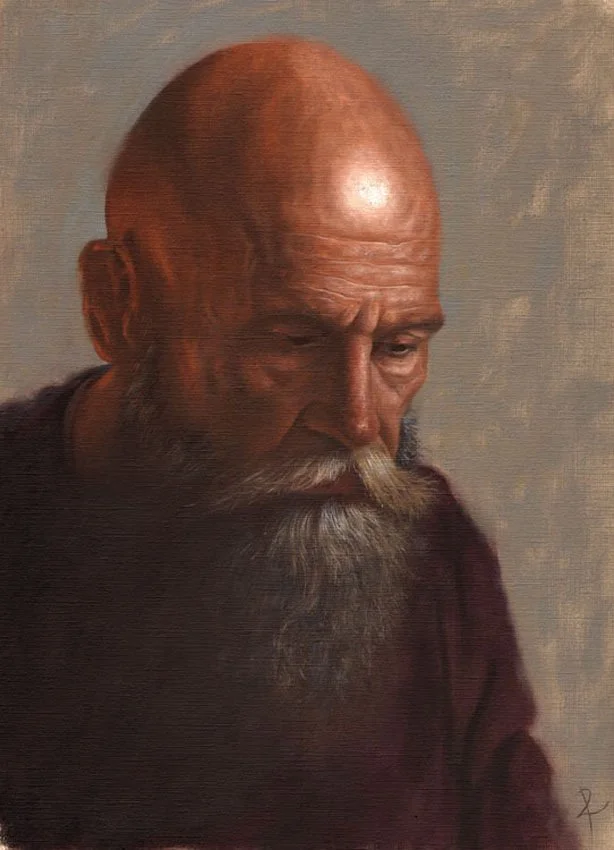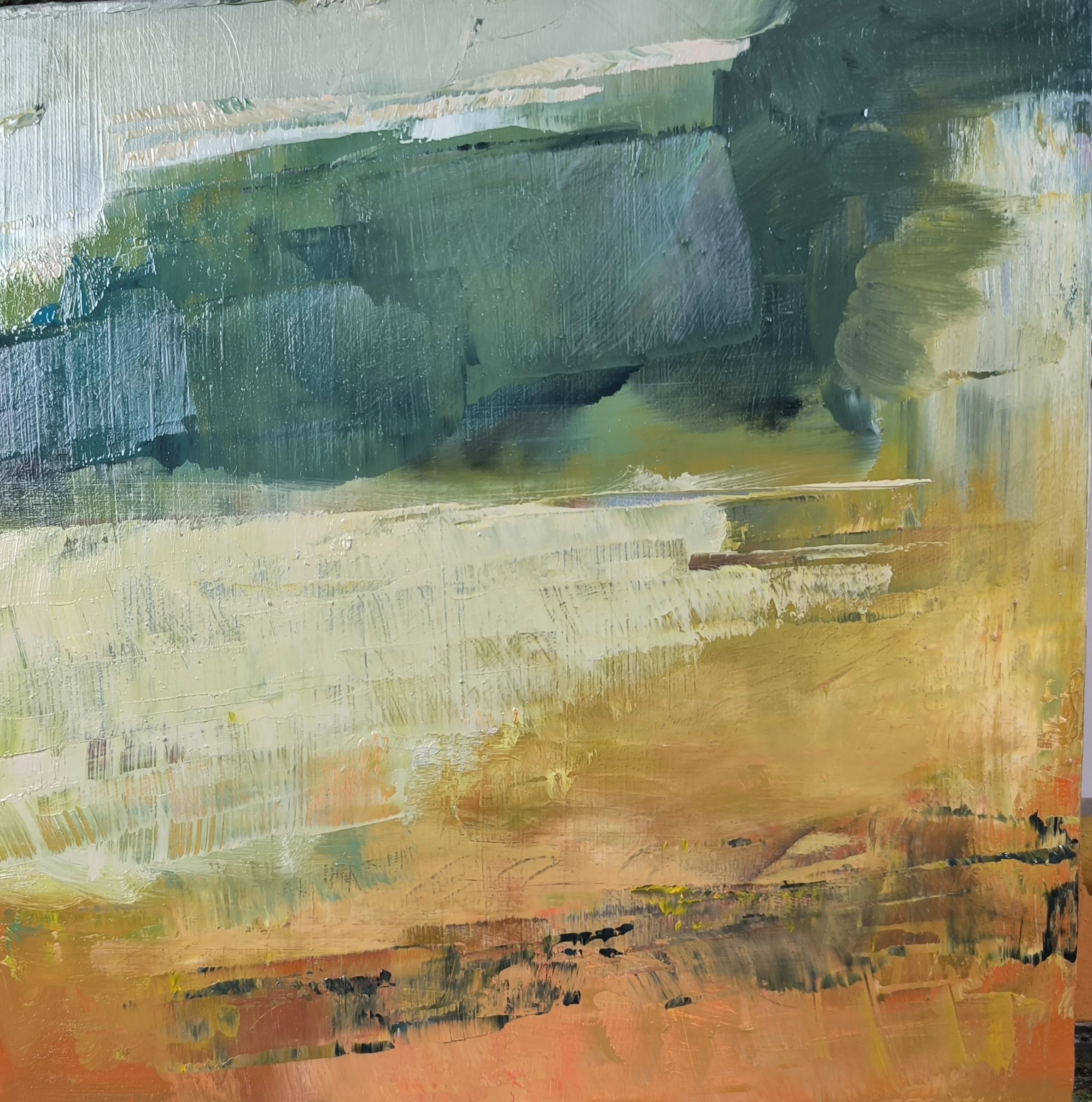
Events

Captured by the French Navy! The shipboard diaries of Mary and Martha Russell
On 13 August 1794, two young Birmingham women, Mary and Martha Russell, left England on an American merchant ship. The Russell family were dissenters, active members of Joseph Priestley’s Unitarian church and close friends with many of the intellectuals and radical thinkers associated with that church. Their father's open support for the French and American Revolutions had made the family a target for mob violence, culminating in the burning of their home in 1791. Like the Priestleys and a number of other Birmingham radicals, the Russells were on their way to America to make a new life.
Four days into their voyage, however, their ship was captured by a French frigate. For the next four months they were held prisoner in Brest harbour, being moved from ship to ship every few weeks. They were eventually rescued by an American ship's captain who took them to France. Passing as Americans, they spent six months travelling through revolutionary France before finally leaving for America.
Throughout the entire time, Mary and Martha Russell wrote extensive and detailed diaries. Seeing life on shipboard from a woman's point of view, they provide us with a unique insight into late eighteenth century marine experience.
This talk will explore some of the ways in which Mary and Martha Russell used their journals to define and control the experience of captivity, setting this within the context of the relationship between France and England in 1794 and paying particular attention to the status of foreigners in revolutionary France. I will further explore their problematical relationship to the French Revolution as both supporters and prisoners of that revolution and the contradictory nature of their responses.

The Mummy’s Curse: A Literary Archaeology of the Tutankhamun Excavations
This talk uncovers the fascinating interplay between archaeology and fiction in the wake of Howard Carter’s discovery of Tutankhamun’s tomb. Drawing on Carter’s diaries, his published account of the excavation, and the enigmatic narrative The Tomb of the Bird—co-written with his friend, novelist Percy White—Eleanor Dobson (University of Birmingham) reveals how storytelling shaped the myths surrounding the tomb, including the enduring legend of the mummy’s curse. She also explores how the tomb’s discovery revived earlier literary visions of Egypt, with works by bestselling Victorian author Marie Corelli and Arthur Conan Doyle re-emerging in new editions just as these authors framed the excavation in terms of mystery, danger, and the supernatural in communications with the press after the death of the excavation's financier, the Fifth Earl of Carnarvon. Together, these works reveal how archaeology and imagination intertwined to create one of the most enduring and sensational myths of the modern age.

Ruskin Club
Join Samina for some slow stitching. 11am at the BMI.
Free for BMI members, £5 for non-members.

Why Does Pre-Raphaelitism Matter Now?
On March 20th 2026, 6pm, BMI Senior Vice-President Serena Trowbridge will be giving her inaugural Professorial lecture on behalf of Birmingham City University. ‘Why Does Pre-Raphaelitism Matter Now?’ will look at Pre-Raphaelitism from its inception through to its many later forms, and consider why this nineteenth-century movement still matters in the 21st century.
The lecture will be held at the Birmingham & Midland Institute. Refreshments from 5pm; event is free. Book here: https://www.eventbrite.com/e/1977877529935?aff=oddtdtcreator
There will also be a (fairly low-tech!) livestream for those who can’t attend in person; book here: https://www.eventbrite.com/e/1982061148250?aff=oddtdtcreator

National Census and the Pre-Raphaelite Brotherhood
What can the regular UK National Census records tell us about the
Pre-Raphaelite Brotherhood, their lives, their households and families, and their connections to the West Midlands. Is it more than just names, ages, and addresses?
This presentation is, once again, brought to you by the long standing tenants of the BMI, Midlands Ancestors, the principal family history society for those with interests in the pre-1974 counties of Warwickshire, Worcestershire, and Staffordshire.

Meet The Books: Pre-Raphaelite and Morris
Come and join us for our Meet The Books series of events. For non-BMI members, this is a chance to see what the Birmingham and Midland Institute Library has to offer you. A charge of £20 per person, which entitles you to a Day Membership return visit. Link to the Eventbrite page here... Members, please book a free ticket so that we can ensure a steady flow of people on the Members' day.
Meet The Books: Pre-Raphaelite and Morris
A chance to see our Pre-Raphaelite and rare William Morris books.
Non Members' day: Saturday, 28/03/26, sessions at 10am, 11am, 12 noon, and 2pm. To book a place for this, please follow the Eventbrite link -
Members' Day: Monday, 23/03/26, sessions at 10am, 11am and 12 noon. The Monday Lecture at 1pm is The National Census and the Pre-Raphaelite Brotherhood, with Gareth Pemberton from Midland Ancestors. To book please contact library@bmi.org.uk.

Ruskin Club
Join Betty as we make Art Trading Cards. 11am at the BMI.
Free for BMI members, £5 for non-members.

Clash of empires: the Far Eastern War revisited
An illustrated talk by Ian Binnie on Monday 20th April 2026, 1.00 pm at Birmingham & Midland Institute, 9 Margaret Street, Birmingham B3 3BS.
Last year many countries commemorated V.J. Day, the 80th anniversary of the end of World War 2 in the Far East. However, the conflict in Asia did not end in 1945, nor did it begin in 1941 with the attack on Pearl Harbour. Only the Soviet Union suffered more casualties than China during the war. Ian will bring a new perspective to this topic, outlining recent research and writing on what was a vicious conflict, fought on a massive scale.
Ian is a retired history teacher, amateur historian and member of several local and national history groups. He regularly gives talks on subjects as diverse as the American Civil War in film and the Royal Warwickshire Regiment in World War Two.

AI: Minds, Machines, and the Future
Step into the fascinating world of artificial intelligence with philosopher-in-residence and cognitive scientist - Br. Piran-María. From Asimov’s imaginative robots to today’s powerful AI systems, this lecture explores what AI is — and isn’t — while examining the questions it raises about consciousness, ethics, and the future of society. Through a playful and philosophical lens, you’ll learn the history of AI, see the reality behind the hype, and ponder the minds of machines; leaving you questioning what it really means to be intelligent — or alive.

Ruskin Club
Join Nuala as she shares some of her travel writings. 11am at the BMI.
Free for BMI members, £5 for non-members.

Ruskin Club - JQ Tour
Join Samina on a tour of the Jewellery Quarter. Meet at 11am at the front door of St Paul’s Church.
Free for BMI members, £5 for non-members.

Ruskin Club - Cemetery Tour
Join Samina for a tour of Key Hill and Warstone Lane cemeteries. Meet at 11am at the Archway entry to Warstone Lane Cemetery.
Free for BMI members, £5 for non-members.

Ruskin Club - Exchange Tour
Join us for a tour of The Exchange, Broad Street. Meet at the doors of The Exchange at 11am.
Free for BMI members, £5 for non-members.

Ruskin Club - Sculpture Tour
Join Marian, Betty and Samina for a tour of public sculpture in Birmingham. Place of meeting TBC.
Free for BMI members, £5 for non-members.

Ruskin Club
Join Irene for a tour of the Classics. 11am at the BMI.
Free for BMI members, £5 for non-members.

Birmingham’s Photographic Pioneer: George Shaw (1818-1904)
While Birmingham celebrates figures like Boulton, Watt, and Zephaniah, the story of George Shaw, an early photography pioneer, remains largely untold. Born in Dudley, Shaw became a patent agent, chemist, lecturer, and artist. In 1839, he created Birmingham’s first daguerreotype photograph.
Shaw was deeply involved in civic and scientific life. He championed education, helped establish the city’s first free public library, and was vice president of the Mechanics Institute. His scientific work earned praise from Michael Faraday, and he lectured at the Royal Society on photographic techniques.
Alongside collaborators like Frederick Henry Henshaw and John Percy, Shaw explored electroplating and advanced photographic materials. He also painted and photographed Birmingham’s landscapes, with some of his early calotypes now held in the Musée D’Orsay.
Recently rediscovered by the late Pete James and artist Jo Gane, Shaw’s images reveal a vital chapter in the city’s industrial and artistic past. Jo Gane will present an illustrated lecture on Shaw’s legacy.

Ruskin Club - Cathedral Tour
Join us for a tour of the history of St Phillips Cathedral. 11am at the front door of the Cathedral.
£5 charge from the Cathedral for those under 65 years of age, £4 for those under 65.

Quakers and the Friends Ambulance Unit in WWI
When Britain declared war on Germany on 4 August 1914, it provoked fierce debate among British Quakers. How should they, as Quakers, respond?
The ideal of pacifism is something with which Friends have always grappled. But the violent political struggles in early twentieth century Europe, the German invasion of neutral Belgium, and the apparent rush to war by many nations were shocking and prompted deep reflection. What was the right thing to do?
In the end there were many different responses, ranging from military service to absolutist conscientious objection. One of these was the establishment of a voluntary ambulance corps, made up primarily of university students and recent graduates who, after six weeks basic training, set off for France to try to make a difference.
This illustrated talk explores the work of the Friends Ambulance Corps in World War I and the experiences and feelings of the young men who served in it.
In 2015, Dr Betty Hagglund, together with Dr Rebecca Wynter, co-curated the Birmingham Museum and Art Gallery exhibition Faith and Action: Quakers and the First World War.
Birmingham and the General Strike 1926
The General Strike in 1926 was a unique event in British History. Birmingham, as the second city, was closely involved in the strike as transport workers, print unions and others joined the miners in a national stoppage. Birmingham’s importance was such that every day the Cabinet in London received reports on the strength of worker-sentiment in the city. This talk looks at the causes, duration and outcome of the strike in the city.

Reports of the English Civil War
Having revisited some of the rare books in the Birmingham and Midland Institute Library, we are excited to be able to present some of them to the public. This will be the first of a series of ‘Meet The Books’ events.
On 24th January, 2026, you are invited to book an hour’s session with the five volumes of contemporaneous reports of the English Civil War. These books are exceedingly rare, four volumes appear to be inaccessible anywhere else in the world.
Sessions will be at 10am, 11am, 12 noon, 2pm and 3pm, and are available through the following Eventbrite link. Our Historian in Residence, Andrew Reekes, and librarians will be on hand to guide and assist.

Study Day - Shakespeare King John (1594-6) & King Lear (1605/6)
Both plays explore the vulnerability, uncertainty and perils of kingship. Instability on the throne, at the heart of government, can all too readily precipitate civil strife and rebellion. Both narratives include a son proudly proclaiming his illegitimacy. The Bastard and Edmund are empowered with contrasting motives and effects.

Ruskin Club
Join Betty as we take photographs of the Birmingham and Midland Institute which will be printed and kept for posterity within the Photograph Archive.
Free for BMI members, £5 for non-members.

Group Art Exhibition
This exhibition brings together paintings by four artists who have previously exhibited at the Birmingham and Midland Institute. Peter Tinkler, who is our artist in residence, has used a realistic style of painting to capture the people he depicts in a state of quiet contemplation. Stephen Nicol, who originally trained at Birmingham School of Art has made paintings, many of which are watercolours, based on his travels in Thailand, Cambodia, Vietnam, South Korea and Nepal. Frances Marvell- Carr has drawn inspiration for her paintings from a number of places in the Midlands. Finally, but not least, Suminder Virk, who has also trained at Birmingham School of Art, has used a variety of oil painting techniques to create an abstract painting which conveys a sense of rhythm and harmony.
Exhibition open Monday 12th January to Saturday 21st February Monday to Saturday 10am to 4pm

Study Day - William Makepeace Thackeray, Vanity Fair (1848)
The subtitle ‘A novel without a Hero’ signals the book’s position as a trailblazer for nineteenth-century writing. Set during and after the Napoleonic wars, shunning sentimentality, it traces the narratives of two women: Becky Sharp and Amanda Sedley. Their contrasting characters and perspectives upon life and love provide the mainspring of a novel which has enduring appeal.

Ruskin Club
Join Marian as she tells us about the history of string art, and make your own string art Christmas decoration.
Free for BMI members, £5 for non-members.

Christmas Concert & Mince Pie Morning
This year, for our annual Members' Christmas Pie morning on Friday, 5th December at 11am, we will be joined by Ladywood Community Choir, who rehearse here every week. There will be Christmas songs, mince pies and a cuppa, and the opportunity for a shared lunch if you bring a plate of food to share. Please do not bring mince pies!

CONCERT 'VOICES AND VISIONS'
Professional and student performers from the Royal Birmingham Conservatoire and the Selly Park Singers join forces to support the Birmingham & Midland Institute to raise money for the Building/Library fund and the charity: Street Banquet Birmingham.
The Concert will celebrate the start of the festive season and also explore the meaning of Christmas from different perspectives and narratives through song and the spoken word. Pieces performed include works by Vivaldi/Forbes L'estrange, Karl Jenkins, Gjeilo, Finzi, Tavener, Blake, Dickens.
BMI’s Philosopher-in-residence Br. Piran-María will reflect on themes of winter and renewal - exploring how the stories of Christmas from Dickens to the nativity - reveal the human search for hope, harmony, and new beginnings.
Donations will be collected during and at the end of the concert.
Refreshments, including tea, coffee and mulled wine will be available.

Tove Jansson's 'Great Cold' and the warmth of midwinter literature
As adult readers, we could easily - and rashly - dismiss books written for children as whimsical and slight. Yet winter in children's literature is more often dangerous than cosy, whether in The Box of Delights, The Dark is Rising or The Lion, The Witch and The Wardrobe. Tove Jansson's Midwinter Moominland is no exception. What does her work tell us about winters, literal and metaphorical, and how can we, as Katherine May asks, teach ourselves to winter?

Catherine Bowdler Foyer Exhibition
Catherine Bowdler is a contemporary British screen-printer from The Black Country in the UK and a member of the BMI.
She has been screen-printing for over 25 years after graduating with a degree in printed textiles. Often known for her wildlife prints she primarily prints on artists’ papers, but the love of mixing inks for fabric has long remained, and she is continually building her own personal colour library of inks for paper.
All of the works for this exhibition are printed onto acid free 100% cotton paper which is made using waste cotton from the textile industry, and provides a thick, soft surface ideal for absorbing ink. All the layers are printed by hand, preferring not to use a print bed with an ‘arm’ but to feel the pressure, speed and angle directly.
For the last eighteen months Catherine has been developing her creative practice through abstract works, prioritising composition, colour and clarity, and this show brings together many of the highlights for the first time.
Recent works are concerned with the interplay between solid blocks, texture and negative space, and increasingly the prints are becoming more stripped back, so that placement of individual elements and where they touch is key, and the forms have space to breathe.
Many of the framed pieces are available as unframed prints, please ask at the reception desk if you are interested in reserving one, or you can email Catherine directly or DM on Instagram.
There is a selection of cards featuring Catherine’s wildlife prints at the reception desk as well as a selection of favourites in the print rack.

Study Day - Euripides, The Trojan Women (415 bc)
The play foregrounds the experience of women left behind after the Trojan War. It explores their grief and suffering while exposing how, in war particularly, women are treated by men as commodities. The play is remarkable for the powerful anti-war perspective it offers. We are fortunate to have an excellent, strongly cast film, directed by Michael Cacoyannis (1971).

The day and nights of an anaesthetist
Our Scientist in Residence, Dr James Dawson, talks about the times and trials of being an anaesthetist in different areas in a large city hospital.

Study Day - F. Scott Fitzgerald, The Great Gatsby (1925)
The novel brilliantly exploits first-person narrative to craft a narrative which is both personal and yet also holds a mirror up to Long Island society in the jazz age. The Great Gatsby is celebrated as one of the greatest American novels and there are three major filmed versions which provide contrasting perspectives

Ruskin Club - Council House Tour
Join Ruskin Club for a tour of Birmingham Council House, led by Jayne Francis. Meet at 11am on the front steps to the Council House, Victoria Square. Free for BMI members, £5 for non-members.
Please meet at the Council House steps just before 1pm.

From Liberation to Fragmentation - with Piran Maria
What if the movements that promised freedom and equality—civil rights, feminism, decolonization—ended up creating new forms of isolation? In this lecture, we will explore how collective struggles for justice were gradually transformed into personal identity projects, and how this shift has fragmented our sense of community. We will examine the roles of culture, consumerism, and technology in amplifying this fragmentation. Philosophy offers a companionable space to think together about these challenges: to understand both what is true and what truly matters. During the lecture, I will also share what philosophy means to me and why it continues to matter in our shared journey.

Study Day - The works of Stephen Sondheim
A claim that Sondheim’s achievements may one day sit alongside Shakespeare’s may be a little hyperbolic but the National Theatre’s production of his last piece, Here We Are reminds us of his originality and theatricality. Reference will be made to Follies (1971), A Little Night Music (1963), Sunday in the Park with George (1984), Into the Woods (1987) and Passion (1994).

‘My kingdom for a …’ : Shakespeare and horses
You are invited to hear Dr Pamela Mason share her enthusiasm about Shakespeare whilst also learning about the work of Arden Riding for the Disabled Group from the group’s Senior Instructor Elizabeth Hill. Payment on the day by a suggested donation of £10. Arden RDA is registered charity 1153299.

Poetry Reading with Naush Sabah
In this lunchtime reading and talk, Naush Sabah will give a reading from a new sequence of poems she has been working on as Institute Poet-in-Residence. Her new work continues to engage with the landscapes and histories of Birmingham and its migrant communities as well as responding to the political and social realities of the current moment and how intimately they shape life in the city. Naush will also discuss her editorial work as Publishing Director of Poetry Birmingham Literary Journal and the journal's place in contemporary poetry publishing in the UK.

Study Day - W. Somerset Maugham, The Constant Wife (1926) & Edward Albee, Who’s Afraid of Virginia Woolf? (1962)
Both plays challenge assumptions about relationships and how men and women negotiate the marital contract. The RSC has commissioned Laura Wade to adapt The Constant Wife (for summer performances in the Swan theatre) and a production of Who’s Afraid… is being staged at Leicester’s Curve theatre this October.

Len Mackin Foyer Exhibition
I am a Leamington based painter, working mainly in oils and a regular exhibitor at Warwickshire Open Studios, Leamington Studio Artists (LSA) and Association of Midland Artists (AMA). Originally I was inspired to paint in a traditional way, gleaning inspiration from the past, honing my drawing skills and use of oils, focussing particularly on still life and portrait painting. More recently I have been concerned to explore new directions. My work has become more expressive, interpretative and abstract. Finding my artistic ‘voice’ through landscape painting, gestural marks and capturing the emotion, elements and the forces of weather in my work. I have been influenced, for example, by the work of Scottish painter Joan Eardley and undertaking courses at the St Ives School of Painting and Lewis Noble has encouraged this new direction. The end result being semi abstract and gestural painting which has helped me to use more expressive brushwork and a different colour palette. My paintings aim to explore a sense of place rather than a direct representation, after all photographs can do that. Using pencil lines, slashes of colour and a fractured pictorial space helps with a sense of wildness and mood hopefully giving the viewer a new perspective.
Winner of the 2024 LSA Open Award.
The Space Between
Unamed

Drawing a portrait tutorial
Join Artist in Residence Peter Tinkler as he draws a portrait in pencil, and you can follow along as he takes you through each step of the process. We'll look at basic shapes, structuring the head, using some classic measuring techniques like comparative and alignment for greater accuracy, and finally placing/adding the features. It will be a head in profile, and Peter will supply the reference for it.

Study Day - Jane Austen, Sense and Sensibility (1811)
The relationship between mothers and daughters provides the starting point for the exploration of a novel that richly demonstrates a complexity far beyond any simple opposition between head and heart. Mrs Dashwood’s preference for her younger daughter shapes the future for Marianne and the elder, Elinor.

Life Writing: a 10-week course in bringing your story to life
Everyone has a story worth telling. This course helps you to capture the essence of important moments and shape your real-life stories. You’ll develop key writing skills, such as how to structure your stories and create vivid details. A friendly and supportive class for new and established writers, with online drop-in sessions between classes to help you keep writing.

Grow Your Own: cultivating & sustaining your creative writing
This ten-week course is for all writers over 18, whether seasoned or just getting started, who want to bring new life to their writing. The weekly workshops are designed to help you identify what stops you writing and what connects you more deeply with your innate creativity.
We'll experiment with techniques to help you develop a sustainable writing practice, in a supportive and encouraging environment where you can cultivate your creativity alongside others. You can also drop in to online sessions between classes to write companionably with others in the B-Writing community.

Writing Workshop: Finding your flow and building momentum
This course of ten weekly workshops is designed to help you build momentum on a creative project, work on structure, hone your style, solve narrative problems and learn to edit your own work. It's ideal for adults who are already writing - occasionally or regularly - or want to return to writing after a break.
Sharing work can be terrifying, no matter how much you've written before, but B-Writing classes are supportive and encouraging, and we'll build in techniques to help you work round these fears. There'll also be free drop-in online writing sessions to help you keep writing between classes.

Oswald Mosley in Birmingham
Before ever becoming Britain’s most notorious Fascist politician, Oswald Mosley was a charismatic force in Birmingham, leading the Labour Party’s struggle to break the iron grip of the Chamberlains and their Conservative adherents. That it succeeded by 1929 was largely due to Mosley’s commitment, his money, his energy and his charm. Within years he had fallen out of love with the Labour leadership, blaming their stolid, unimaginative approach to unemployment; deserting his Smethwick supporters he set out to create a New Party and by 1931 Birmingham Labour voters reviled him and he was violently driven from the city.


